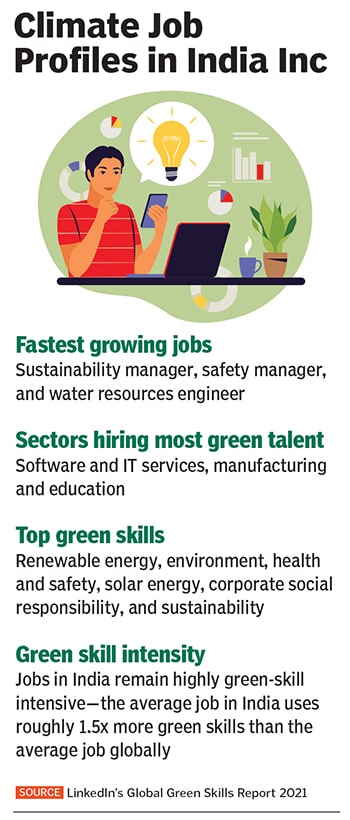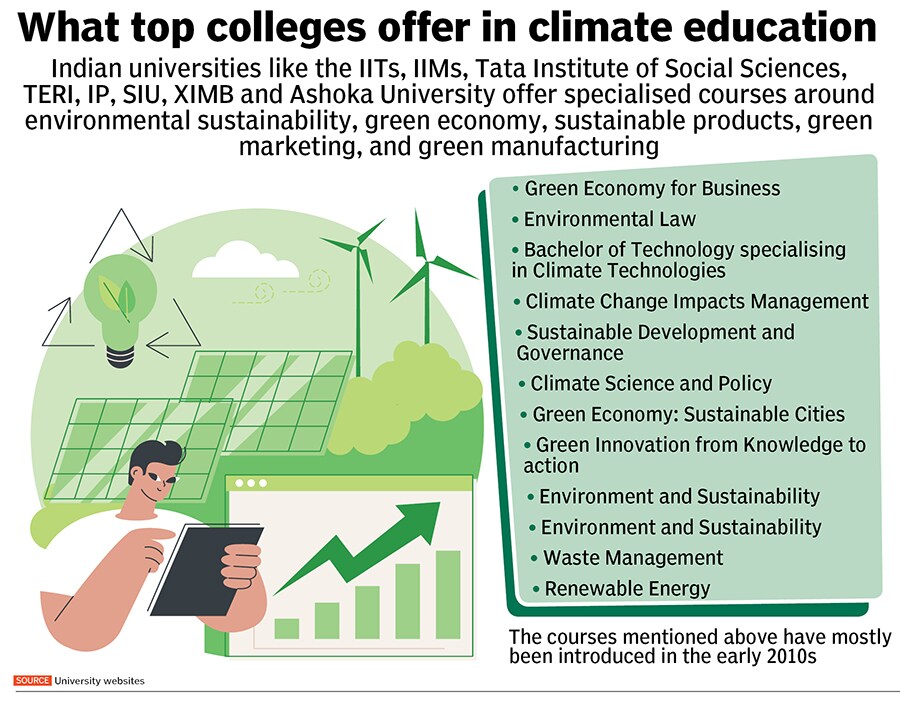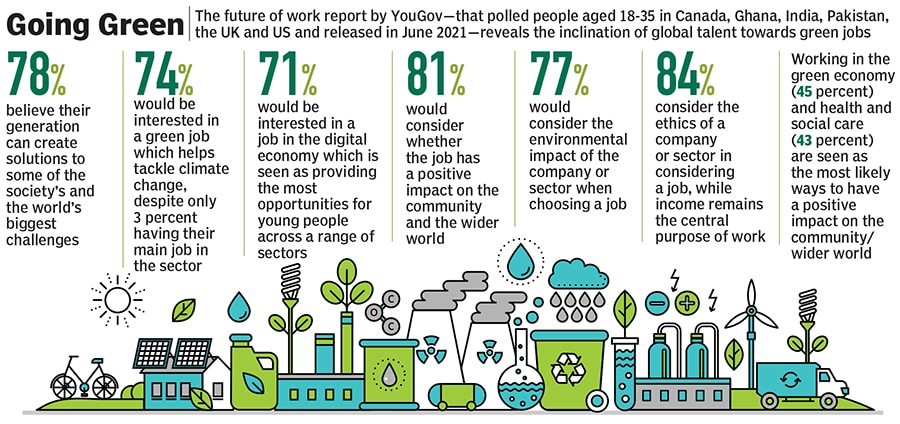
Climate change is here. And so are green education and jobs
Indian companies are increasingly recruiting a workforce skilled in climate action, with young professionals wanting to build a sustainable future. And education institutes are aiding this by introducing courses on the subject
 Shital Parmar, an educator is passionate about empowering children to lead a climate-conscious life
Image: Mayur Bhatt for Forbes India
Shital Parmar, an educator is passionate about empowering children to lead a climate-conscious life
Image: Mayur Bhatt for Forbes India
Shital Parmar regularly browses online recruitment platforms for job opportunities at corporates focussed on climate action. An educator, Parmar (53) is passionate about empowering children to lead a climate-conscious life. “Around seven years ago, I started teaching students about climate change and we worked on projects that made me realise how immediate action is the need of the hour,” she says.
Parmar completed a postgraduate diploma in environmental sustainable development from IGNOU last year, and is now looking for jobs to help companies build a climate strategy. She says there are openings, but not enough. “With the kind of crisis we are dealing with, every company, big or small, should have a special team for climate action, which seems like a long shot at present,” says the Ahmedabad resident.
With an increased awareness of the impact of climate change and the evident implications of it being felt, more professionals are looking to build a career to drive climate action. Mumbai’s Disha Sadhnani is one such climate enthusiast who completed her master’s in communications and started looking for opportunities specifically in corporate philanthropy.
“I’ve always wanted to do my bit for society, in whatever capacity. The climate crisis needs immediate action and I want to be a part of building a sustainable future,” says Sadhnani, who is an assistant manager under Tata Trust’s partnerships team and works on rural upliftment, water, and sanitation, education, nutrition, and health projects.
Shaurya Sharma (25), a management graduate from Ludhiana, Punjab, scouts through LinkedIn each day to look for climate consultancy jobs. “I’m looking for a job in the sustainability arm of a company. I want to work towards reducing the severe implications of climate change,” says Sharma. “While there are jobs, those aren’t enough, just like there is awareness that lacks action. If someone today is not building on an environmentally conscious presence, in whatever field they are in, they are either too privileged or have no voice.”
_20220316022208_102x77.jpg)




 At COP26, India announced a 500 GW non-fossil electricity capacity goal by 2030, which might lead to the creation of over 3.5 million green jobs in the short and long terms.
At COP26, India announced a 500 GW non-fossil electricity capacity goal by 2030, which might lead to the creation of over 3.5 million green jobs in the short and long terms. 






